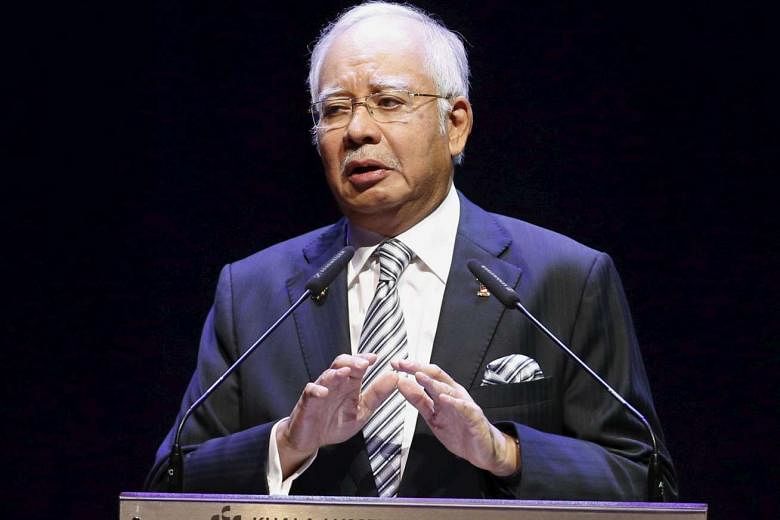KUALA LUMPUR (REUTERS) - Malaysian Prime Minister Najib Razak on Saturday (Nov 21) called on world leaders to confront terrorism, saying its "barbaric acts" do not represent any race or religion, as he opened the regional Asean summit overshadowed by a spate of attacks around the globe.
Islamist militants killed 19 people in an attack on a hotel in Mali on Friday (Nov 20)before Malian commandos stormed the building and rescued 170 people, many of them foreigners.
This came a week after Islamic State in Iraq and Syria (ISIS) militants killed 129 people in coordinated attacks in Paris.
"The perpetrators of these cowardly and barbaric acts do not represent any race, religion or creed, nor should we allow them to claim to do so," Najib said in his opening speech at the Asean summit. "They are terrorists and should be confronted as such, with the full force of the law."
Malaysia has deployed extraordinary security measures around Kuala Lumpur as leaders from 18 countries, including US President Barack Obama, arrived for a pair of weekend summits.
Obama said on Saturday (Nov 21) the Mali hotel attacks only stiffened the resolve of the United States and its allies, which would be relentless in fighting those targeting its citizens and would allow militants no safe haven.
ECONOMIC COMMUNITY
Most of the leaders arrived from the Asia-Pacific Economic Cooperation (Apec) summit in Manila. Both the Apec meeting and the Asean summit typically focus on economic issues but have been overshadowed by the terrorist attacks.
Najib said he had intended to open the summit to talk about an economic community that the 10-nation Asean intends to launch in a region of 622 million people with a combined economic output of US$2.5 trillion (S$3.5 trillion). "But the events of recent days and weeks have cast a shadow over us all," he said.
He said predominantly Islamic countries such as Malaysia have a duty to expose as lies the "ideology propagated by these extremists that is the cause of this sadistic violence.
Malaysia has announced it is setting up a"counter-terrrorism" messaging centre using social media and other messaging tools.
Obama's latest flurry of summitry illustrates how his effort to "rebalance" US policy toward Asia-Pacific countries has consistently run into the geopolitical reality that the persistently volatile Middle East cannot be ignored.
He has been dogged during his swing through the region by concerns over how to counter ISIS militants.
Much of his time at the G20 summit in Turkey and the Apec gathering in Manila was focused half a world away on the violence emanating from Syria's 4-1/2-year-old civil war.
Obama's aides privately have expressed frustration. They had hoped to better showcase what they see as progress in his strategic "pivot to Asia" with his signature TPP trade deal moving forward and security ties strengthening to help counter China's influence in the region.
TENSIONS AT SEA
Obama said on Friday (Nov 20) that discussion over the disputed islands in the South China Sea "will be a major topic" for all the Asean countries.
Beijing has overlapping claims with Vietnam, the Philippines, Malaysia, Taiwan and Brunei in the South China Sea, through which US$5 trillion in ship-borne trade passes every year.
Reclamation work and the building of three airfields and other facilities on some of China's artificial islands in the Spratly archipelago have alarmed the region and raised concern in Washington that China is extending its military reach deep into maritime Southeast Asia.
Earlier this month, US B-52 bombers flew near Chinese artificial islands in the area, signalling Washington's determination to challenge Beijing over the disputed sea.
"We call on all parties to exercise self-restraint, and avoid actions that would complicate or escalate tensions,"Malaysia's Najib said. Malaysia is the Chair of Asean this year.
China has said it does not want the South China Sea issue to be the focus of the meetings in Kuala Lumpur. A draft of the Chairman's statement to be issued at the end makes no mention of the recent tensions. The statement was still being negotiated, summit sources said.

